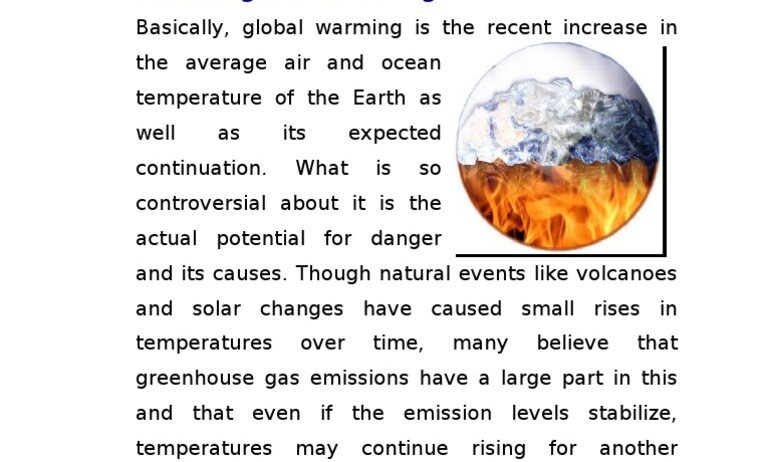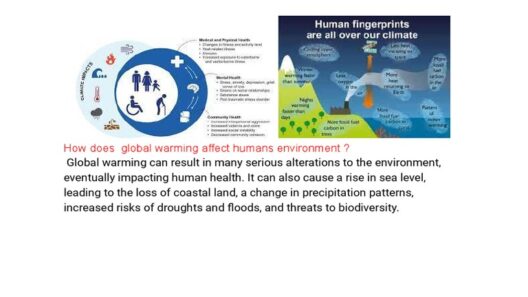The question of whether using electricity contributes to global warming often evokes a spirited debate, akin to a tempestuous sea, with enthusiasts on both sides vying for dominance. To navigate these turbulent waters, it is essential to dissect the elements of electricity generation and consumption and their implications for our planet’s climate. A simple guide illuminates this multifaceted issue and reveals the intricate relationship between our energy choices and global warming.
At the crux of this discussion lies the concept of greenhouse gas emissions. Electricity itself is not the nemesis in our climate crisis; rather, it is the method by which electricity is generated that holds the key. Many countries rely predominantly on fossil fuels such as coal, oil, and natural gas to produce electricity. These sources are akin to ancient dragons, belching out carbon dioxide (CO2) and other greenhouse gases into the atmosphere. When these gases accumulate, they create a thick blanket around the Earth, trapping heat and precipitating the phenomenon we now refer to as global warming.
In stark contrast, renewable energy sources—think of them as the benevolent guardians of our environment—offer a more sustainable way to generate electricity. Solar panels, wind turbines, and hydropower facilities harness natural phenomena, converting sunlight, wind, and water flow into energy without releasing harmful emissions. The transition from fossil fuels to renewables is critical in mitigating climate change, resembling a metamorphosis from a caterpillar into a butterfly, where the latter is far more resilient and beneficial to the ecosystem.
However, it is important to recognize that not all electricity comes from these noble sources. In regions heavy with reliance on coal, the act of flipping a switch can unwittingly unleash a torrent of greenhouse gases. The statistics are sobering; power plants that burn coal emit approximately twice as much CO2 per unit of electricity generated compared to natural gas plants. Transitioning to cleaner energy sources is thus not merely an option; it is a vital necessity for curtailing the scourge of climate change.
The degree of electricity consumption also plays a pivotal role in the overall equation. Just as an overindulgent feast can lead to health complications, excessive use of electricity can compound our environmental woes. High consumption rates strain electrical grids and demand a greater output from power plants. This higher demand often means reactivating older, less efficient plants—ones that might not have the environmental safeguards of their modern counterparts. This unfortunate domino effect underscores the need for not only cleaner energy production but also responsible energy consumption.
Energy efficiency is yet another crucial pillar in our fight against climate change. Consider the analogy of a ship navigating through treacherous waters using advanced navigational tools—energy-efficient appliances and practices can steer us clear of perilous emissions. By adopting energy-efficient technologies, such as LED lighting or Energy Star-rated appliances, households can significantly reduce their overall energy consumption. Consequently, this reduction mitigates the demand for energy generated by fossil fuels, thereby curtailing greenhouse gas emissions.
In addition to improving efficiency, engaging in energy conservation practices is tantamount to ensuring our environmental longevity. Simple habits, such as turning off lights when they are not in use and unplugging devices that consume phantom energy, contribute significantly to reducing electricity usage. Education and awareness serve as key tools in this pivotal effort, as understanding the impact of individual actions can create a ripple effect throughout communities and beyond.
Several nations have recognized the urgency of climate change and are increasingly investing in renewable energy and energy-efficient technologies. Countries like Denmark have emerged as beacons of hope, demonstrating that it is possible to run a significant portion of a nation’s electricity needs from renewables alone. This transition is not merely an ambitious goal; it is becoming a tangible reality across the globe. As other nations strive to follow suit, a cooperative effort may foster global solidarity in achieving a sustainable and ecologically balanced future.
The electric vehicle (EV) revolution also plays a substantial role in this narrative. Cars powered by electricity can reduce greenhouse gas emissions, especially when charged from renewable sources. The metaphorical shift from gas-guzzlers to EVs can be likened to replacing the rusting machinery of industry with sleek, efficient technology—reflecting a paradigm shift toward a more sustainable transportation model. However, it is critical to consider the electricity source that charges these vehicles; otherwise, the very act of electrification could inadvertently contribute to the emissions we seek to alleviate.
Ultimately, using electricity does not inherently cause global warming, but the manner in which that electricity is generated and consumed significantly influences our environmental footprint. Just as our choices on the dining table can determine our health, the choices we make concerning energy can dictate the ecosystem’s vitality. The path forward is illuminated by efficiency, conservation, and a steadfast commitment to renewable energy sources. In a world that strikes a delicate balance between energy needs and environmental sustainability, each decision—no matter how small—can stir the tides of change, ushering in an era of climate awareness and action. The future lies not in despair but in hope, determination, and harmony with the planet we call home.







